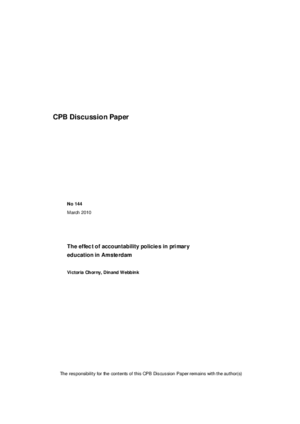The effect of accountability policies in primary education in Amsterdam
Prestaties basisonderwijs in Amsterdam verbeterd
We are sorry, unfortunately there is no English translation of this page.
This paper assesses the increase in test scores of educational achievements in primary schools in Amsterdam by analyzing data of a large sample of schools, including scores on a published test and scores on similar independently taken tests that are not published.
In 1995, the municipality of Amsterdam introduced accountability policies for schools in primary education. Population statistics show a large increase of test scores in the decade after the introduction of the policies.
Difference-in-differences estimates show that after the introduction of the accountability policies, test scores for both tests taken in grade 8 increased substantially more in Amsterdam than in the rest of the country and more than in a sample of pupils with a low socio-economic status. Approximately 60 percent of the increase of the published test scores can be attributed to an increase in general skills and 40 percent to an increase in test-specific skills. Test scores of pupils in lower grades also improved in Amsterdam.
We do not find evidence for strategic behavior of schools. Although part of the gains in test scores might be test-specific, the accountability policies in Amsterdam seem to have succeeded in raising educational achievements in primary schools.
